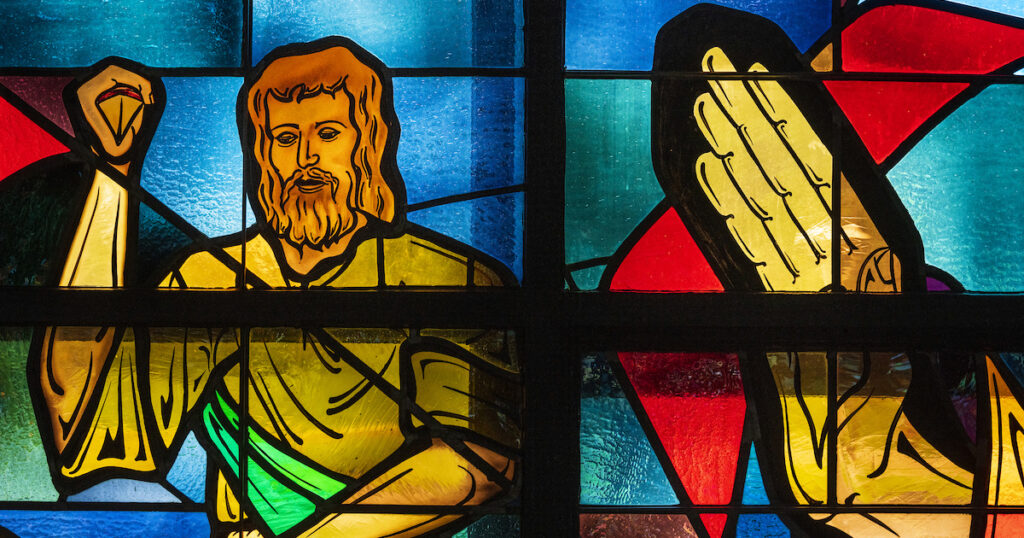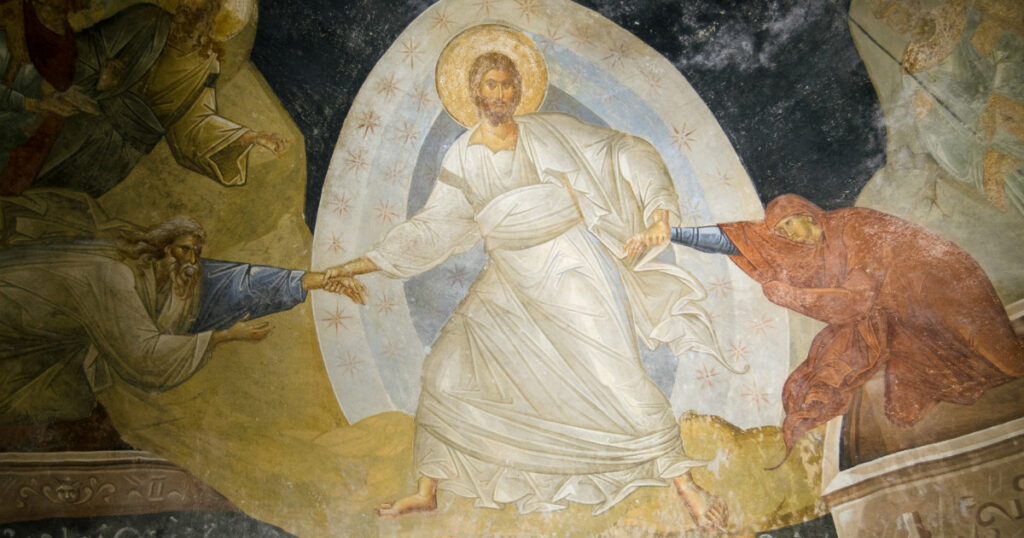Wednesday of Lent 5, preached at the International Center on March 29, 2023.
Text: Genesis 22:1–14
In the Name of the Father and of the Son and of the Holy Spirit.
What to do when the temptation and trial seems to come, not from the devil, the world or your sinful flesh, but from God? This was Abraham’s predicament. Yes, yes, as you learned in the catechism, God tempts no one, but we pray in the Sixth Petition that God would guard and keep us so that the devil, the world and our sinful nature may not deceive us or mislead us into false belief, despair and other great shame and vice. But then tempt and test are not that different, and God clearly puts Abraham to the test.
Luther says:
The verb “to tempt” must be particularly noted, for it is not put here needlessly. Nor should it be treated as coldly as James does ([James] 1:13), when he declares that nobody is tempted by God. For here Scripture states plainly that Abraham was actually tempted by God Himself, not concerning a woman, gold, silver, death, or life but concerning a contradiction of Holy Scripture. Here God is clearly contradicting Himself; for how do these statements agree: “Through Isaac shall your descendants be named” (Gen. 21:12) and “Take your son, and sacrifice him”?
(LW 4:92)
How can you resolve “Love your neighbor” or “if anyone says, ‘I love God,’ and hates his brother, he is a liar” (1 John 4:20) with “If anyone comes to me and does not hate his own father and mother and wife and children and brothers and sisters, yes, and even his own life, he cannot be my disciple” (Luke 14:26)? Is this not what God called Abraham to do? Hate his own son, the very son of the promise, to prove that he is more faithful to the Giver of the gift than the gift, more devoted to the Promiser than the child of the promise?
Don’t let the systematicians ruin the contradiction. Certainly, don’t fall into the apologist’s trap of trying to hide the scandal from scrutiny. To our eyes and ears, this certainly seems like a contradiction that cannot be undone. And if a God who calls the patriarch of all patriarchs to sacrifice the son of promise, the son — not Ishmael, mind you — through whom Abraham’s descendants would be named, through whom the promised Messiah would come, through whom all the nations of the world would be blessed, makes you a little uncomfortable, imagine how it must have felt to Abraham to wake Isaac up, saddle the donkeys, load up the wood for the fire, slip the flint knife into the sheath on his hip and set out for the mountain. Imagine Abraham’s thoughts as he bound up Isaac, laid him on the altar, and with tears put the knife to the neck of the son who elicited his laughter.
What do you do when God is against God? How many lesser trials have caused you to question your faith or the wisdom of belonging to a God who seems either powerless or disinterested to save His people from afflictions?
The writer of Hebrews gives the solution. “By faith Abraham, when he was tested, offered up Isaac, and he who had received the promises was in the act of offering up his only son, of whom it was said, ‘Through Isaac shall your offspring be named.’ He considered that God was able even to raise him from the dead, from which, figuratively speaking, he did receive him back” (Heb. 11:17–19).
Luther again:
Abraham understood the doctrine of the resurrection of the dead, and through it alone he resolved this contradiction, which otherwise cannot be resolved; and his faith deserves the praise it receives from the prophets and apostles. These were his thoughts: “Today I have a son; tomorrow I shall have nothing but ashes. I do not know how long they will lie scattered; but they will be brought to life again, whether this happens while I am still alive or a thousand years after my death. For the Word declares that I shall have descendants through this Isaac, even though he has been reduced to ashes.”
(LW 4:96)
The Lord provides. A ram caught in the thicket to take the place of the boy. A Lamb to be slaughtered and roasted on the spit of the cross. A sacrifice to take away sin. Contradictions only exist in this vale of tears between the fall and the resurrection. They are a deficiency of our broken logic and our lost original righteousness. Yes, trials hurt. But they needn’t kill, at least not eternally.
The pastor whose daughter was senselessly murdered on Monday shared this sentence yesterday: “Through tears we trust that she is in the arms of Jesus who will raise her to life once again.”
Resurrection is the solution, not some disembodied, incorporeal future existence, but flesh and bone, blood and bile, synapses and neurons back together. Life from dust. Then you will know fully. Then all apparent contradictions will be perfectly and happily resolved. Then all trials will make sense. Then and not now. Now is the time for obedience and trust, for raising the flint knife and putting it to the necks of our doubts.
God’s promises are truer than your thoughts. He has baptized you, ransomed you from the captivity of the devil, the world and your sinful flesh. You are His. And He is yours. For good, no matter appearances. He is the God not of the dead but of the living. All the dead are alive in Him. All sadness, all sicknesses, all suffering, all trials and temptations have their resolution already. Jesus died and rose. And in Baptism you have died and risen with Him.
In the Name of the Father and of the Son and of the Holy Spirit.
Photo: LCMS Communications/Erik M. Lunsford




